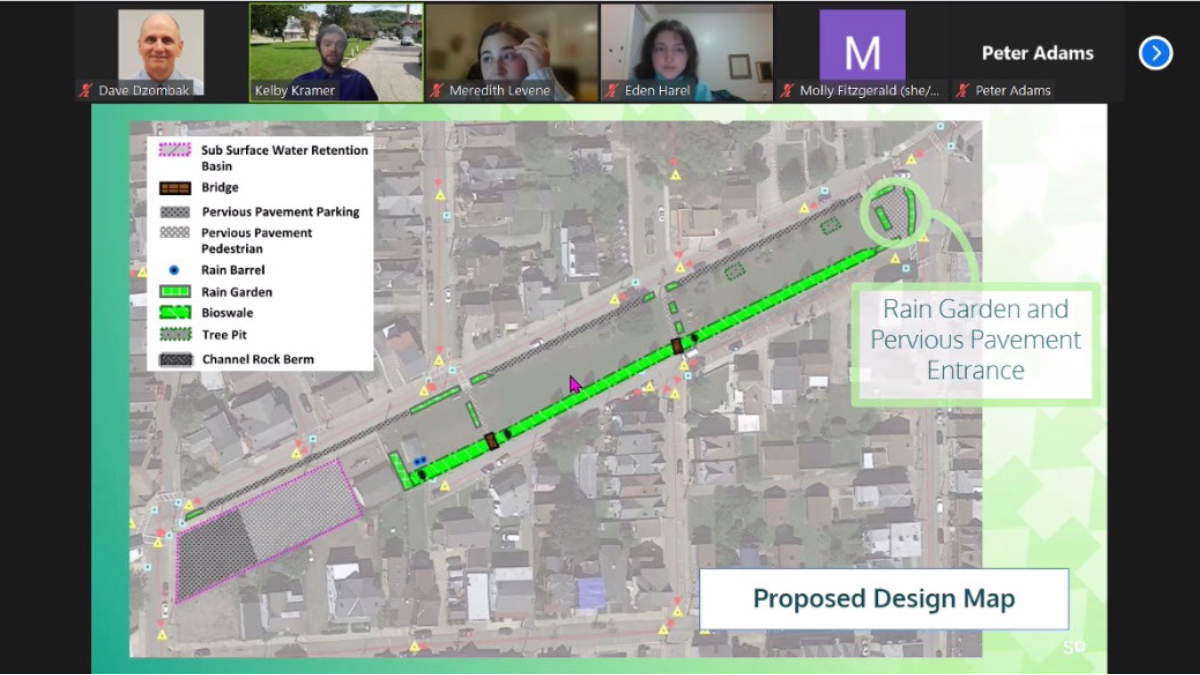
The Evolution of CEE: Preparing the Next Generation of Engineers and Problem Solvers
CEE’s latest initiatives have included the launch of an Environmental Engineering bachelor’s program, new lab courses for Civil Engineering undergraduates, a stronger emphasis on sensors in design courses, and a growing focus on diversity, equity, and inclusion. Overseen by Department Head Dave Dzombak, our faculty and staff are equipping students to become skilled problem-solvers, critical thinkers, and industry leaders who apply a deep understanding of CEE principles, technology, and tools to make communities around the world safer, more equitable, and more inclusive for all.
Part 1 // Part 2 // Part 3 // Part 4
CEE Classes Tackle Topics of Diversity, Equity, and Inclusion in Engineering
Our CEE faculty are united in the goal of developing socially conscious engineers who understand how their decisions impact communities and individuals. Across the curriculum, courses examine issues like inequitable pollution, resource access, climate impacts, and community displacements through historical and current lenses, while also emphasizing the skills needed to identify potential problems, address existing injustices, and design more equitable infrastructure in the future.
Conversations around diversity, equity, and inclusion (DEI) start right away for first-year students in Exploring CEE: Infrastructure and Environment in a Changing World, which highlights engineers’ roles and responsibilities in creating equitable and just infrastructure systems. As one of many examples, students learn about the historical connections between racism, traffic congestion, and infrastructure.
This thread expands and evolves throughout the rest of the program. Students studying computation and data science, for example, encounter the disparate impacts of common image compression algorithms for different skin tones and hair colors.
“In the hands of an engineer who is actually developing and deploying systems in the real world, even seemingly esoteric mathematical principles can have tremendous DEI implications, for better or for worse,” explains professor Jerry Wang. “As engineers, it is absolutely critical that we understand how to draw the lines that connect our bedrock of technical rigor with the DEI outcomes of our work.”
In the Environmental Engineering class, water chemistry is oriented in the context of the Flint water crisis, highlighting the subject’s real-world relevance and links between infrastructure decisions and social and environmental justice.
“Students need to know chemistry and how to solve quantitative water system problems, but before we make decisions based on science and engineering, we need to account for the people our decisions affect,” says professor Joe Moore. “People are at the heart of everything engineers do.”
“If we want to make progress on vital DEI challenges, students need to be exposed early and often to this way of thinking."
For our senior project course, professors Sarah Christian and David Rounce worked with CMU’s Eberly Center for Teaching Excellence and Educational Innovation to establish a more inclusive, community-supported design process. As students set out to improve amenities for a local park and design infrastructure to reduce urban runoff, they interacted with community members to learn about their needs and past stormwater problems and mitigation efforts. As the course progressed, students used community feedback to finalize designs and physical models that could effectively meet the citizens’ needs.
Some CEE students delve even deeper into DEI topics through research, with several undergraduates recently working with professor Destenie Nock to assess the social impacts of various decarbonization scenarios. Likewise, many graduate students, supported by Nock and other faculty, are studying DEI topics.
CEE’s DEI efforts have also drawn outside attention and inspired similar initiatives at other schools, including through a recent presentation detailing CEE’s approach to academic leaders in the American Society of Civil Engineers.
“The things you’re exposed to in your undergraduate training will leave an indelible mark. You will think in and solve problems using those frameworks for the rest of your life,” professor Wang emphasizes. “If we want to make progress on vital DEI challenges, students need to be exposed early and often to this way of thinking. It’s a big task, but there are a lot of people here working hard on this front, people who really care. That’s something our department is proud of.”